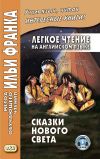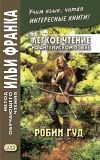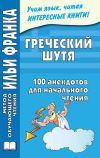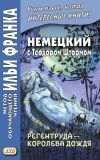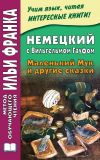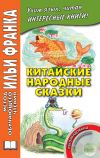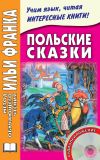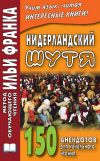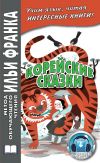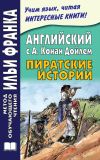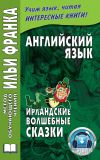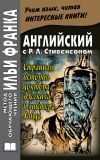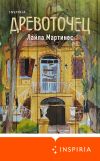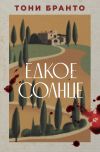Текст книги "Английский с Шерлоком Холмсом. Человек с рассеченной губой / Arthur Conan Doyle. Sherlock Holmes"
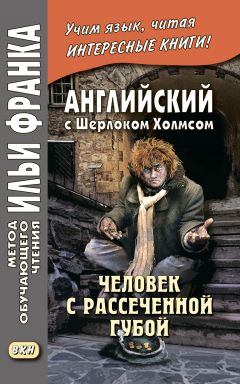
Автор книги: Артур Дойл
Жанр: Иностранные языки, Наука и Образование
Возрастные ограничения: +16
сообщить о неприемлемом содержимом
Текущая страница: 9 (всего у книги 21 страниц)
occasion [ǝ'keɪʒ(ǝ)n], chart [ʧɑ:t], rigmarole ['rɪɡmǝrǝʋl]
“'It is very possible. We took no pains to hide it.'
“'He simply wished, I should imagine, to refresh his memory upon that last occasion. He had, as I understand, some sort of map or chart which he was comparing with the manuscript, and which he thrust into his pocket when you appeared.'
“'That is true. But what could he have to do with this old family custom of ours, and what does this rigmarole mean?'
“'I don't think that we should have much difficulty in determining that,' said I; 'with your permission we will take the first train down to Sussex, and go a little more deeply into the matter upon the spot.'
“The same afternoon saw us both at Hurlstone (тот же день застал нас в Херлстоне = в тот же день мы прибыли в Херлстон). Possibly you have seen pictures and read descriptions of the famous old building (возможно, вы видели изображения и читали описания этого знаменитого старинного здания), so I will confine my account of it to saying (поэтому я ограничу свой рассказ о нем = скажу лишь; to confine – ограничивать; confine – граница, предел) that it is built in the shape of an L (что оно построено в виде /буквы/ «L»; shape – форма, очертание, вид), the long arm being the more modern portion (длинное крыло является более современной частью; arm – рука; стрела /крана/; плечо /рычага/; portion – часть, доля, отдел), and the shorter the ancient nucleus (более короткое – древним центром; nucleus – ядро, центр), from which the other had developed (из которого выросло второе /крыло/; to develop – развивать/ся/, расти). Over the low, heavily-lintelled door (над низкой, массивной дверью; lintel – притолока; перемычка /над оконным или дверным проемом/), in the centre of this old part (в центре старинной части), is chiseled the date, 1607 (высечена дата «1607»; chisel – долото, стамеска; to chisel – высекать, чеканить), but experts are agreed that the beams and stone-work (но знатоки сходятся во мнении, что балки и каменная кладка; beam – луч; балка; брус) are really much older than this (на самом деле значительно старше). The enormously thick walls and tiny windows of this part (чрезвычайно толстые стены и крошечные окна этой части /здания/) had in the last century driven the family into building the new wing (в прошлом веке побудили семейство построить новое крыло; to drive-drove-driven – гнать; побуждать), and the old one was used now as a store-house and a cellar (а старое теперь использовалось как кладовая и погреб), when it was used at all (если вообще использовалось). A splendid park with fine old timber surrounds the house (великолепный парк с прекрасными старыми деревьями окружает дом; timber – лесоматериал; лесистый участок, район; лесные угодья), and the lake, to which my client had referred (а пруд, о котором упоминал мой клиент), lay close to the avenue (находился недалеко от аллеи; to lie – лежать; располагаться), about two hundred yards from the building (примерно в двухстах ярдах от здания).
building ['bɪldɪŋ], nucleus ['nju:klɪǝs], enormously [ɪ'nɔ:mǝslɪ], avenue ['ævǝnju:]
“The same afternoon saw us both at Hurlstone. Possibly you have seen pictures and read descriptions of the famous old building, so I will confine my account of it to saying that it is built in the shape of an L, the long arm being the more modern portion, and the shorter the ancient nucleus, from which the other had developed. Over the low, heavily-lintelled door, in the centre of this old part, is chiseled the date, 1607, but experts are agreed that the beams and stone-work are really much older than this. The enormously thick walls and tiny windows of this part had in the last century driven the family into building the new wing, and the old one was used now as a store-house and a cellar, when it was used at all. A splendid park with fine old timber surrounds the house, and the lake, to which my client had referred, lay close to the avenue, about two hundred yards from the building.
“I was already firmly convinced, Watson (я был уже твердо убежден, Ватсон), that there were not three separate mysteries here (что тут не было трех отдельных загадок), but one only, and that if I could read the Musgrave Ritual aright (а только одна, и что если бы я смог правильно понять «Обряд дома Месгрейвов») I should hold in my hand the clue (у меня бы появилась нить) which would lead me to the truth concerning both the butler Brunton and the maid Howells (которая привела бы меня к правде относительно = к разгадке исчезновения и дворецкого Брантона, и горничной Хауэллс). To that then I turned all my energies (на это я направил все силы). Why should this servant be so anxious to master this old formula (почему слуга так стремился проникнуть в /суть/ этой старинной формулы; to master – одолевать; овладевать, усваивать)? Evidently because he saw something in it (очевидно, потому что он увидел в ней нечто) which had escaped all those generations of country squires (что ускользало от /внимания/ всех тех поколений местных помещиков; country – страна; /сельская/ местность, территория; squire – сквайр; /местный/ помещик, самый влиятельный землевладелец в округе), and from which he expected some personal advantage (и из чего он предполагал /извлечь/ какую-то личную выгоду). What was it then, and how had it affected his fate (что же это было и как это отразилось на его судьбе)?
“It was perfectly obvious to me, on reading the ritual (мне стало совершенно ясно, когда я прочитал обряд), that the measurements must refer to some spot (что цифры: «измерения» относятся к какому-то месту; to measure – измерять) to which the rest of the document alluded (на которое ссылается остальная часть документа), and that if we could find that spot (и что если бы мы нашли это место), we should be in a fair way towards finding what the secret was (мы оказались бы на верном пути к выяснению тайны) which the old Musgraves had thought it necessary to embalm in so curious a fashion (которую прежние Месгрейвы сочли необходимым сохранить таким странным способом; to embalm – бальзамировать /тело/; сохранять от забвения).
formula ['fɔ:mjʋlǝ], measurement ['meʒǝmǝnt], embalm [ɪm'bɑ:m]
“I was already firmly convinced, Watson, that there were not three separate mysteries here, but one only, and that if I could read the Musgrave Ritual aright I should hold in my hand the clue which would lead me to the truth concerning both the butler Brunton and the maid Howells. To that then I turned all my energies. Why should this servant be so anxious to master this old formula? Evidently because he saw something in it which had escaped all those generations of country squires, and from which he expected some personal advantage. What was it then, and how had it affected his fate?
“It was perfectly obvious to me, on reading the ritual, that the measurements must refer to some spot to which the rest of the document alluded, and that if we could find that spot, we should be in a fair way towards finding what the secret was which the old Musgraves had thought it necessary to embalm in so curious a fashion.
“There were two guides given us to start with (для начала нам были даны два ориентира), an oak and an elm (дуб и вяз). As to the oak there could be no question at all (что касается дуба, то тут вообще не было никаких затруднений; question – вопрос; сомнение, возражение; to make no question of something – не сомневаться в чем-либо). Right in front of the house (прямо перед домом), upon the left-hand side of the drive (слева от дороги; drive – езда; дорога для экипажей; подъездная аллея /к дому/), there stood a patriarch among oaks (стоял дуб-патриарх: «патриарх среди дубов»), one of the most magnificent trees that I have ever seen (одно из великолепнейших = внушительнейших деревьев, что я когда-либо видел).
“'That was there when your ritual was drawn up (он был здесь, когда ваш обряд был записан; to draw up – составлять /документ/),' said I, as we drove past it (сказал я, когда мы проезжали мимо него).
“'It was there at the Norman Conquest in all probability (по всей вероятности, он стоял здесь /еще/ во время Нормандского завоевания; Norman Conquest – Нормандское завоевание /завоевание Англии норманнами в 1066 году/),' he answered (ответил он). 'It has a girth of twenty-three feet (он имеет двадцать три фута в обхвате; girth – обхват /дерева, талии/).'
“'Have you any old elms (у вас есть старые вязы)?' I asked.
“'There used to be a very old one over yonder (был один очень старый вон там) but it was struck by lightning ten years ago (но в него ударила молния десять лет назад; to strike), and we cut down the stump (и мы срубили то, что осталось; stump – пень, обрубок; дерево с обрезанной верхушкой).'
guide [ɡaɪd], patriarch ['peɪtrɪɑ:k], conquest ['kɒŋkwest]
“There were two guides given us to start with, an oak and an elm. As to the oak there could be no question at all. Right in front of the house, upon the left-hand side of the drive, there stood a patriarch among oaks, one of the most magnificent trees that I have ever seen.
“'That was there when your ritual was drawn up,' said I, as we drove past it.
“'It was there at the Norman Conquest in all probability,' he answered. 'It has a girth of twenty-three feet.'
“'Have you any old elms?' I asked.
“'There used to be a very old one over yonder but it was struck by lightning ten years ago, and we cut down the stump.'
“'You can see where it used to be (вы знаете, где он был раньше)?'
“'Oh, yes (ну да, /конечно/).'
“'There are no other elms (а других вязов здесь нет)?'
“'No old ones, but plenty of beeches (старых нет, но много буков).'
“'I should like to see where it grew (мне хотелось бы взглянуть, где он рос).'
“We had driven up in a dogcart (мы приехали в двуколке; dogcart – двухколесный двухместный экипаж /под задним сиденьем находится место для охотничьих собак/; cart – телега; повозка; двуколка; dog – собака), and my client led me away at once (и мой клиент повел меня сразу), without our entering the house (не заходя в дом), to the scar on the lawn where the elm had stood (к тому месту на газоне, где прежде рос вяз; scar – рубец, шрам). It was nearly midway between the oak and the house (оно находилось примерно посередине между дубом и домом). My investigation seemed to be progressing (мое расследование шло успешно: «казалось продвигающимся»).
“'I suppose it is impossible to find out how high the elm was (полагаю, /теперь/ невозможно определить высоту вяза: «насколько высоким был вяз»; to find out – узнать, выяснить)?' I asked (спросил я).
dogcart ['dɒɡkɑ:t], scar [skɑ:], progressing ['prǝʋɡresɪŋ]
“'You can see where it used to be?'
“'Oh, yes.'
“'There are no other elms?'
“'No old ones, but plenty of beeches.'
“'I should like to see where it grew.'
“We had driven up in a dogcart, and my client led me away at once, without our entering the house, to the scar on the lawn where the elm had stood. It was nearly midway between the oak and the house. My investigation seemed to be progressing.
“'I suppose it is impossible to find out how high the elm was?' I asked.
“'I can give you it at once (могу вам сейчас же это сказать). It was sixty-four feet (он был шестьдесят четыре фута высотой /около 19,5 м/).'
“'How do you come to know it (как вам удалось это узнать)?' I asked, in surprise (спросил я с удивлением).
“'When my old tutor used to give me an exercise in trigonometry (когда мой старый домашний учитель задавал мне задачи по тригонометрии), it always took the shape of measuring heights (они всегда принимали форму измерения высот = были построены на измерении высоты). When I was a lad (когда я был мальчиком) I worked out every tree and building in the estate (я высчитал высоту каждого дерева и строения в поместье; to work out – высчитать, вычислить; решить /задачу/).'
“This was an unexpected piece of luck (это была неожиданная удача). My data were coming more quickly (сведения приходили ко мне быстрее) than I could have reasonably hoped (чем я мог рассчитывать; reasonably – разумно; рассудительно).
“'Tell me (скажите),' I asked, 'did your butler ever ask you such a question (а ваш дворецкий когда-нибудь задавал вам тот же вопрос)?'
“Reginald Musgrave looked at me in astonishment (Реджинальд Месгрейв посмотрел на меня удивленно).
'Now that you call it to my mind (теперь, когда вы напомнили мне = теперь припоминаю),' he answered, 'Brunton did ask me about the height of the tree some months ago (Брантон действительно спрашивал меня о высоте этого дерева несколько месяцев назад), in connection with some little argument with the groom (в связи с каким-то незначительным спором с конюхом; to groom – ходить за лошадью, чистить лошадь; ухаживать, холить).'
trigonometry [,trɪɡǝ'nɒmǝtrɪ], height [haɪt], argument ['ɑ:ɡjʋmǝnt]
“'I can give you it at once. It was sixty-four feet.'
“'How do you come to know it?' I asked, in surprise.
“'When my old tutor used to give me an exercise in trigonometry, it always took the shape of measuring heights. When I was a lad I worked out every tree and building in the estate.'
“This was an unexpected piece of luck. My data were coming more quickly than I could have reasonably hoped.
“'Tell me,' I asked, 'did your butler ever ask you such a question?'
“Reginald Musgrave looked at me in astonishment.
'Now that you call it to my mind,' he answered, 'Brunton did ask me about the height of the tree some months ago, in connection with some little argument with the groom.'
“This was excellent news, Watson (это было превосходное известие, Ватсон), for it showed me that I was on the right road (поскольку оно показало, что я на правильном пути). I looked up at the sun (я взглянул на солнце). It was low in the heavens (оно находилось низко на небесах = заходило), and I calculated that in less than an hour it would lie just above the topmost branches of the old oak (и я рассчитал, что меньше чем через час оно будет как раз над самыми верхними ветвями старого дуба). One condition mentioned in the Ritual would then be fulfilled (одно условие, упомянутое в «Обряде», тогда будет выполнено). And the shadow of the elm must mean the farther end of the shadow (а тень от вяза должна означать самый дальний конец этой тени), otherwise the trunk would have been chosen as the guide (в противном случае в качестве указателя выбрали бы ствол; to choose-chose-chosen). I had, then, to find where the far end of the shadow would fall (итак, мне нужно было определить, куда упадет /дальний/ конец тени) when the sun was just clear of the oak (когда солнце окажется прямо над дубом; clear – ясный, четкий; полный, целый).”
“That must have been difficult, Holmes (должно быть, это было трудно, Холмс), when the elm was no longer there (ведь вяза больше там не было).”
“Well, at least I knew that if Brunton could do it, I could also (по крайней мере я знал, что если Брантон мог это сделать, то и я смогу). Besides, there was no real difficulty (кроме того, на самом деле это было нетрудно). I went with Musgrave to his study and whittled myself this peg (я пошел вместе с Месгрейвом в его кабинет и сам вырезал этот колышек; to whittle – строгать или оттачивать ножом /дерево/; вырезать), to which I tied this long string with a knot at each yard (к которому привязал эту длинную веревку с узелком на каждом ярде = отметив каждый ярд узелком).
calculated ['kælkjʋleɪtɪd], mentioned ['menʃ(ǝ)nd], knot [nɒt]
“This was excellent news, Watson, for it showed me that I was on the right road. I looked up at the sun. It was low in the heavens, and I calculated that in less than an hour it would lie just above the topmost branches of the old oak. One condition mentioned in the Ritual would then be fulfilled. And the shadow of the elm must mean the farther end of the shadow, otherwise the trunk would have been chosen as the guide. I had, then, to find where the far end of the shadow would fall when the sun was just clear of the oak.”
“That must have been difficult, Holmes, when the elm was no longer there.”
“Well, at least I knew that if Brunton could do it, I could also. Besides, there was no real difficulty. I went with Musgrave to his study and whittled myself this peg, to which I tied this long string with a knot at each yard.
“Then I took two lengths of a fishing-rod (затем я взял два куска удилища /и соединил их/; length – длина; кусок, отрезок /троса, трубы или провода/; to fish – ловить рыбу; rod – прут, стержень, ветвь; удочка), which came to just six feet (что составило шесть футов), and I went back with my client to where the elm had been (и мы с клиентом вернулись к /тому месту/, где рос вяз). The sun was just grazing the top of the oak (солнце как раз касалось вершины дуба; to graze – слегка касаться, задевать; скользить по поверхности /о луче света/). I fastened the rod on end (я установил палку вертикально; on end – стоймя; дыбом; вертикально), marked out the direction of the shadow (отметил направление тени), and measured it (измерил ее). It was nine feet in length (она была девять футов длиной).
“Of course the calculation now was a simple one (естественно, теперь вычисления были простыми). If a rod of six feet threw a shadow of nine (если палка длиной шесть футов отбрасывает тень в девять /футов/), a tree of sixty-four feet would throw one of ninety-six (то дерево /высотой/ шестьдесят четыре фута отбросит тень в девяносто шесть футов), and the line of the one would of course be the line of the other (и направление одной, разумеется, совпадет с направлением другой). I measured out the distance (я отмерил это расстояние), which brought me almost to the wall of the house (которое привело меня почти к стене дома), and I thrust a peg into the spot (и я воткнул колышек в том месте). You can imagine my exultation, Watson (можете представить мое торжество, Ватсон), when within two inches of my peg (когда в двух дюймах от своего колышка) I saw a conical depression in the ground (я увидел конусообразное углубление в земле). I knew that it was the mark made by Brunton in his measurements (я понял, что это была отметина, сделанная Брантоном при его измерениях), and that I was still upon his trail (и что я по-прежнему шел по его следу).
fastened ['fɑ:s(ǝ)nd], brought [brɔ:t], exultation [,eɡzʌl'teɪʃ(ǝ)n]
“Then I took two lengths of a fishing-rod, which came to just six feet, and I went back with my client to where the elm had been. The sun was just grazing the top of the oak. I fastened the rod on end, marked out the direction of the shadow, and measured it. It was nine feet in length.
“Of course the calculation now was a simple one. If a rod of six feet threw a shadow of nine, a tree of sixty-four feet would throw one of ninety-six, and the line of the one would of course the line of the other. I measured out the distance, which brought me almost to the wall of the house, and I thrust a peg into the spot. You can imagine my exultation, Watson, when within two inches of my peg I saw a conical depression in the ground. I knew that it was the mark made by Brunton in his measurements, and that I was still upon his trail.
“From this starting-point I proceeded to step (от этой исходной точки я начал /отсчитывать/ шаги; to proceed to – приступать к; приниматься за), having first taken the cardinal points by my pocket-compass (сначала определив страны света с помощью карманного компаса; cardinal – основной, главный). Ten steps with each foot took me along parallel with the wall of the house (десять шагов каждой ногой повели меня параллельно стене дома), and again I marked my spot with a peg (и снова я отметил место колышком). Then I carefully paced off five to the east (затем я тщательно отсчитал пять /шагов/ на восток) and two to the south (и два на юг). It brought me to the very threshold of the old door (они привели меня к самому порогу старой двери). Two steps to the west meant now (два шага на запад означали теперь) that I was to go two paces down the stone-flagged passage (что мне придется сделать два шага по выложенному каменными плитами коридору; to flag – мостить плитами; flag – каменная плита; плитняк), and this was the place indicated by the Ritual (это и было место, указанное в «Обряде»).
“Never have I felt such a cold chill of disappointment, Watson (никогда я не испытывал такого горького разочарования, Ватсон; chill – холод; озноб, дрожь). For a moment it seemed to me (на минуту мне показалось) that there must be some radical mistake in my calculations (что в моих вычислениях /допущена/ какая-то грубая, существенная ошибка). The setting sun shone full upon the passage floor (заходящее солнце ярко освещало пол коридора; to shine), and I could see that the old, foot-worn gray stones (и я видел, что старые, истертые ногами серые каменные плиты; foot-worn – исхоженный, утоптанный, истертый ногами) with which it was paved were firmly cemented together (которыми он был выложен, крепко связаны замазкой), and had certainly not been moved for many a long year (и, естественно, их не сдвигали с места в течение многих лет).
parallel ['pærǝlel], threshold ['θreʃ(h)ǝʋld], cemented [sɪ'mentɪd]
“From this starting-point I proceeded to step, having first taken the cardinal points by my pocket-compass. Ten steps with each foot took me along parallel with the wall of the house, and again I marked my spot with a peg. Then I carefully paced off five to the east and two to the south. It brought me to the very threshold of the old door. Two steps to the west meant now that I was to go two paces down the stone-flagged passage, and this was the place indicated by the Ritual.
“Never have I felt such a cold chill of disappointment, Watson. For a moment it seemed to me that there must be some radical mistake in my calculations. The setting sun shone full upon the passage floor, and I could see that the old, foot‑worn gray stones with which it was paved were firmly cemented together, and had certainly not been moved for many a long year.
“Brunton had not been at work here (Брантон здесь ничего не делал: «не поработал»). I tapped upon the floor (я постучал по полу /в нескольких местах/), but it sounded the same all over (но он всюду звучал одинаково), and there was no sign of any crack or crevice (не было никаких признаков трещины или щели). But, fortunately, Musgrave, who had begun to appreciate the meaning of my proceedings (но к счастью, Месгрейв, который начал понимать смысл моих действий; to begin-began-begun), and who was now as excited as myself (и который был теперь так же взволнован, как и я), took out his manuscript to check my calculation (достал манускрипт, чтобы проверить мои расчеты).
“'And under (и вниз),' he cried (вскричал он). 'You have omitted the “and under (вы упустили /слова/: «и вниз»).”'
“I had thought that it meant that we were to dig (я думал, это означало, что нам нужно копать; to mean), but now, of course, I saw at once that I was wrong (но теперь, разумеется, я тотчас понял, что ошибался).
'There is a cellar under this then (значит, там внизу есть подвал)?' I cried.
“'Yes, and as old as the house (да, такой же старый, как и дом). Down here, through this door (вниз, через эту дверь).'
appreciate [ǝ'pri:ʃɪeɪt], excited [ɪk'saɪtɪd], course [kɔ:s], cellar ['selǝ], door [dɔ:]
“Brunton had not been at work here. I tapped upon the floor, but it sounded the same all over, and there was no sign of any crack or crevice. But, fortunately, Musgrave, who had begun to appreciate the meaning of my proceedings, and who was now as excited as myself, took out his manuscript to check my calculation.
“'And under,' he cried. 'You have omitted the “and under.”'
“I had thought that it meant that we were to dig, but now, of course, I saw at once that I was wrong.
'There is a cellar under this then?' I cried.
“'Yes, and as old as the house. Down here, through this door.'
“We went down a winding stone stair (мы спустились вниз по винтовой каменной лестнице), and my companion, striking a match (и мой спутник, чиркнув спичкой), lit a large lantern which stood on a barrel in the corner (зажег большой фонарь, стоявший на бочке в углу). In an instant it was obvious (в одно мгновение стало очевидно) that we had at last come upon the true place (что мы наконец-то нашли то, что искали: «истинное место»; to come upon smth. – напасть неожиданно, натолкнуться на что-либо), and that we had not been the only people to visit the spot recently (и что мы были не единственными людьми, кто недавно посетил это место).
“It had been used for the storage of wood (подвал использовался для хранения дров), but the billets, which had evidently been littered over the floor (но поленья, которые, по-видимому, /раньше/ были разбросаны по полу; to litter – сорить, разбрасывать вещи, делать беспорядок), were now piled at the sides (теперь были отодвинуты в стороны; to pile – складывать, сваливать в кучу), so as to leave a clear space in the middle (так, чтобы оставить свободное пространство посередине). In this space lay a large and heavy flagstone (здесь лежала огромная и тяжелая каменная плита) with a rusted iron ring in the centre (с заржавленным железным кольцом в центре) to which a thick shepherd's-check muffler was attached (к которому был привязан толстый клетчатый шарф; shepherd's-check – мелкий шашечный рисунок; черно-белая клетка; шерстяная ткань в черно-белую клетку; shepherd – пастух).
“'By Jove (черт возьми: «клянусь Юпитером!»)!' cried my client (вскричал мой клиент). 'That's Brunton's muffler (это шарф Брантона). I have seen it on him, and could swear to it (я видел этот шарф на нем, могу поклясться в этом). What has the villain been doing here (что этот негодяй здесь делал)?'
lantern ['læntǝn], recently ['ri:s(ǝ)ntlɪ], storage ['stɔ:rɪʤ], iron ['aɪǝn]
“We went down a winding stone stair, and my companion, striking a match, lit a large lantern which stood on a barrel in the corner. In an instant it was obvious that we had at last come upon the true place, and that we had not been the only people to visit the spot recently.
“It had been used for the storage of wood, but the billets, which had evidently been littered over the floor, were now piled at the sides, so as to leave a clear space in the middle. In this space lay a large and heavy flagstone with a rusted iron ring in the centre to which a thick shepherd's-check muffler was attached.
“'By Jove!' cried my client. 'That's Brunton's muffler. I have seen it on him, and could swear to it. What has the villain been doing here?'
“At my suggestion a couple of the county police were summoned to be present (по моему предложению были вызваны два /констебля из/ полиции графства; to be present – присутствовать), and I then endeavored to raise the stone by pulling on the cravat (и затем я попытался поднять плиту, потянув за шарф). I could only move it slightly (я лишь едва мог двинуть ее), and it was with the aid of one of the constables (и только с помощью одного из констеблей) that I succeeded at last in carrying it to one side (мне удалось наконец сдвинуть: «перенести» ее в сторону). A black hole yawned beneath into which we all peered (черная яма зияла под ней, в которую мы все заглянули), while Musgrave, kneeling at the side (а Месгрейв, встав на колени на краю), pushed down the lantern (опустил туда фонарь).
“A small chamber about seven feet deep (маленькая комнатка примерно семь футов глубиной) and four feet square lay open to us (с квадратным основанием, шириной и длиной около четырех /футов/, открылась перед нами; square – квадрат; квадратный, с квадратным основанием). At one side of this was a squat (в одной стороне стоял низкий и широкий), brass-bound wooden box (отделанный медью деревянный сундук; brass-bound – отделанный медью: brass-bound box – коробка с медными накладками), the lid of which was hinged upwards (крышка которого была откинута), with this curious old-fashioned key projecting from the lock (этот необычный старомодный ключ торчал из замка). It was furred outside by a thick layer of dust (снаружи он был покрыт толстым слоем пыли; fur – мех; накипь /в чайнике, котле/; осадок /в винной бочке/), and damp and worms had eaten through the wood (сырость и черви так изъели дерево), so that a crop of livid fungi was growing on the inside of it (что плесень росла внутри сундука; crop – урожай; обилие, масса; livid – синевато-серый, серовато-синий; мертвенно бледный). Several discs of metal (несколько металлических кружков), old coins apparently (очевидно, старинных монет), such as I hold here (таких, как эти; to hold – держать; хранить), were scattered over the bottom of the box (валялись: «были разбросаны» на дне сундука), but it contained nothing else (но больше в нем ничего не было).
cravat [krǝ'væt], yawned [jɔ:nd], kneeling ['ni:lɪŋ], metal ['metl]
“At my suggestion a couple of the county police were summoned to be present, and I then endeavored to raise the stone by pulling on the cravat. I could only move it slightly, and it was with the aid of one of the constables that I succeeded at last in carrying it to one side. A black hole yawned beneath into which we all peered, while Musgrave, kneeling at the side, pushed down the lantern.
“A small chamber about seven feet deep and four feet square lay open to us. At one side of this was a squat, brass-bound wooden box, the lid of which was hinged upwards, with this curious old-fashioned key projecting from the lock. It was furred outside by a thick layer of dust, and damp and worms had eaten through the wood, so that a crop of livid fungi was growing on the inside of it. Several discs of metal, old coins apparently, such as I hold here, were scattered over the bottom of the box, but it contained nothing else.
“At the moment, however (однако в ту минуту), we had no thought for the old chest (мы не думали о старом сундуке), for our eyes were riveted upon that which crouched beside it (наши взгляды были прикованы к тому, что находилось рядом с ним; to rivet – клепать, склепывать; сосредоточивать /внимание/; устремлять /взгляд/; rivet – заклепка; to crouch – припадать к земле; согнуться, склониться). It was the figure of a man (это был человек), clad in a suit of black (одетый в черный костюм), who squatted down upon his hams (который сидел на корточках; ham – бедро, ляжка; to squat on one's hams – сидеть на корточках) with his forehead sunk upon the edge of the box (упершись лбом в край сундука) and his two arms thrown out on each side of it (и обхватив его руками: «обхватив каждую сторону»; to throw out – выставить, выпрямить, протянуть /ногу, руку/). The attitude had drawn all the stagnant blood to the face (такое положение вогнало всю застоявшуюся кровь в лицо = от такого положения лицо налилось кровью), and no man could have recognized that distorted liver-colored countenance (и никто бы не узнал это искаженное/перекошенное лицо темно-каштанового цвета; countenance – выражение лица, лицо; liver – печень); but his height (но его роста), his dress (одежды), and his hair were all sufficient to show my client (и волос было достаточно, чтобы мой клиент смог определить: «указать моему клиенту»), when we had drawn the body up (когда мы приподняли тело; to draw up – выпрямлять/ся/, вытягивать/ся/), that it was indeed his missing butler (что это действительно его пропавший дворецкий). He had been dead some days (он был мертв /уже/ несколько дней), but there was no wound or bruise upon his person to show (но на теле не было ни ран, ни кровоподтеков, указывавших на то) how he had met his dreadful end (каким образом он встретил свою страшную смерть). When his body had been carried from the cellar (когда его тело вытащили из подвала) we found ourselves still confronted with a problem (перед нами по-прежнему стояла загадка; to confront – встретиться лицом к лицу; столкнуться /с трудностями, проблемами и т. д./) which was almost as formidable as that with which we had started (почти такая же трудноразрешимая, как и та, с которой мы начинали; formidable – страшный; труднопреодолимый; очень трудный: formidable task – невероятно трудная задача).
Правообладателям!
Это произведение, предположительно, находится в статусе 'public domain'. Если это не так и размещение материала нарушает чьи-либо права, то сообщите нам об этом.